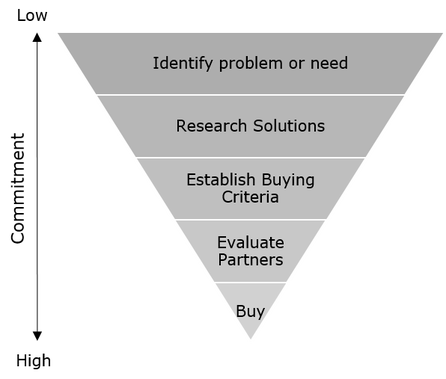We spend a lot of time talking about the three types of consulting intellectual property (IP) with our clients:
- IP to run the business
- IP to deliver and scale the work
- IP to market and sell the business (often referred to as ‘content’)
Of the three, marketing IP is the forgotten child.
Consulting is a crowded and vague market. You’ve got to be heard above the noise and differentiate yourself. To do that and sell higher value work, your sales and marketing engine has to have content that opens and closes sales opportunities.
Specifically, marketing IP does this by:
- Reducing the perceived risk in hiring you
- Making you more “findable”
- Demonstrating expertise
- Enabling your inbound marketing to attract better qualified prospects
- Making your outbound marketing campaigns more effective
Simply put, marketing IP is an umbrella term used to describe any type of information used in some way to acquire customers. This information can be in the form of blog posts, articles, eBooks, DIY or how-to guides, industry news, question-and-answer articles, case studies, whitepapers, videos, podcasts, slide presentations — the list goes on and on.
Steps to creating effective marketing content
Even creative exercises require some structure. Without a defined approach to identifying the right content to get through to buyers, you’ll run the risk of investing scarce resources into efforts that won’t hit the mark.
Here’s a six-step plan to creating effective marketing content:
- Understand the buyer’s journey
- Create buyer personas for your ideal clients
- Anticipate questions your ideal client will ask at each stage of the journey
- Brainstorm content that can be created to answer each question
- Audit your ideas against existing IP — what needs to be created, reused or edited?
- Finalise the plan and editorial calendar
The buyer’s journey consists of five stages and the type of content they will find useful varies depending on what stage they are at. At the first stage, they identify they have a problem or need and will often google their problem to discover if anybody else has faced it. At this stage, articles, blog posts and press releases are the most appropriate for their needs. As they move further along the buying journey, to researching solutions, establishing buying criteria, evaluating partners and buying, they will be looking for different supporting content, such as webinars, case studies, references and proposals. A consulting firm needs to have marketing content available that suits each stage the buyer is at.

Understanding the buyer’s journey lays the foundation for your marketing content, but buyer personas add the nuance. A good way to look at your ideal client is to focus on particulars of their role and business environment, such as their responsibilities, what keeps them up at night and how their performance is measured. You can then layer the personas on top of the buyer journey to pinpoint the content required to move prospects through the sales funnel.
Now it’s time to start boiling down your ideas for content that can be created to answer prospect’s questions at each stage in the journey. This brainstorm should be treated as a creative group exercise and we recommend that the team leading this combines experienced delivery staff with sales and marketing staff. This way you not only create stronger content, but also align everyone in the firm to a shared understanding of the marketing material.
And there are plenty of opportunities to reuse content you have created, in whole or in part. If you can turn every piece of content you produce into five separate works, then you’ve created five paths for people to follow back to you for the creative costs of practically one.
The last step is to finalise the plan and editorial calendar. This not only gives a clear idea of what needs to happen when, but when a consultant is on the bench, it makes it much easier to direct their time to creating content, and ultimately value, for the organisation.
By being disciplined in your approach to marketing IP, you will not only help drive increased business in the short term, you will also become more appealing to potential buyers.
Written by Jason Parks, Director – Strategic Advisory Services, Equiteq. Originally published on Equiteq Edge.

